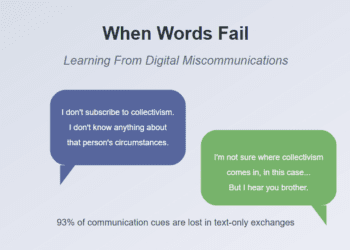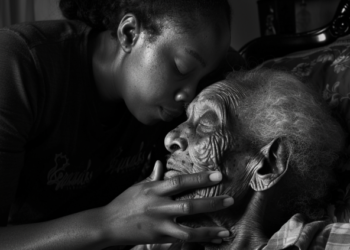Life often feels like a rollercoaster of dramas and emotions. Whether it’s disputes with your spouse, outbursts with friends, tensions at work, conflicts with family, or any number of other issues, it’s easy to get sucked into the whirlwind of drama. Strong reactive feelings arise, harsh words get exchanged, resentment builds, and relationships suffer.
Before you know it, you’ve lost your cool yet again and made a regrettable situation even worse. But allowing your emotions to control you only breeds more inner turmoil and outer conflict. Learning to stay calm, clear-headed, and mentally centered when surrounded by interpersonal drama is crucial for maintaining inner peace, fulfilling relationships, and overall happiness.
The Drama Dilemma: A Personal Reflection
Before we dive into the strategies, let me share a personal anecdote. There was a time when I struggled with my temper, allowing myself to be consumed by anger in the heat of the moment. I yearned to lash out and inflict hurt upon those I clashed with. As the years passed, I came to a profound realization – more often than not, the source of the drama was far from significant. This epiphany became the cornerstone of my journey towards tranquility.
Understanding the Roots of Drama
To skillfully handle drama, it helps to understand where it comes from in the first place. Drama typically flares up when the following factors are present:
- Built-up resentment, anger, or grievances
- Poor or reactive communication
- Clashing needs, interests, values, or personalities
- Boundary issues like disrespect, criticism, or controlling behavior
- Environmental stresses like job loss, grief, or financial strain
- Perfectionistic, defensive, or controlling personality traits
- Lack of conflict resolution skills
- Raised, stressed out voices and confrontational body language
When these elements converge, even small conflicts can quickly escalate into major blowups. Learning to recognize drama triggers enables you to proactively avoid them or thoughtfully defuse them.
Identifying Drama’s Root Causes
| Root Cause | Description |
|---|---|
| Miscommunication | Breakdown in understanding, leading to misconceptions and heightened emotions. |
| Conflicting Interests | Clash of priorities or goals, often resulting in tension and discord. |
| Unresolved Emotions | Lingering feelings of anger, resentment, or hurt that fuel confrontations. |
Understanding these root causes allows us to address them proactively, diffusing potential drama before it escalates.
How to Remain Calm in Tumultuous Times
When tensions run high and drama ensues, it’s crucial to keep your composure. Losing your cool will only stir the pot. Yelling angrily, saying cruel things you later regret, making unfair accusations, or storming off dramatically will worsen matters immensely.
Here are some tips to help you keep your head when tensions around you are coming to a boil:
- Take slow, deep breaths. Inhale slowly and deeply through your nose, allowing your belly to expand. Hold the breath for a few seconds. Exhale slowly through your mouth. Deep belly breathing stimulates the parasympathetic nervous system, halting the fight-or-flight stress response.
- Step away from the situation if needed. If emotions are running too high between you and the other person, politely excuse yourself from the interaction to regain your bearings before continuing. Say you need some fresh air or water. Removing yourself from the whirlwind gives you space to recenter.
- Seek solitude in nature or a quiet space. Being alone in a peaceful natural setting or meditative spot enables you to get the separation required to calm your agitated mind and emotions. Let the serene stillness restore you.
- Focus fully on the present moment. Don’t dwell on who did or said what in the past. Don’t preemptively catastrophize what might happen in the future. Stay mentally anchored in the here and now, the only place where you have any power to act or change things.
- Be an impartial observer. Rather than getting swept up in the drama, mentally step back and watch it unfold as a neutral bystander. Observe the experience without immediately judging or reacting. This helps you respond thoughtfully rather than emotionally react.
- Let go of criticism and blame. Dropping criticism and blame neutralizes a huge amount of the conflict. Remember, you cannot control other people’s problematic actions, only your own wise responses.
- Radiate compassion. Even when facing unreasonable people or unjust situations, approach them with caring, patience, empathy, and insight rather than escalating the drama. Compassion has a profoundly calming effect on turbulent dynamics.
“Setting boundaries is an act of self-respect.”
Practicing non-reaction helps you stay peaceful and clear-headed when chaos, confusion, and conflict reign. Keep breathing, disengage temporarily if needed, and approach the situation mindfully rather than emotionally. This stops drama in its tracks.
How to Stay Grounded When Things Seem Out of Control
When drama makes life feel chaotic and uncertain, staying grounded spiritually and emotionally is key. You maintain equilibrium amidst turbulence by keeping yourself anchored in the present moment. Here are some techniques to help you regain stability when drama makes you feel off-balance:
Connect with nature to calm the mind
- Take mindful walks outdoors, moving slowly and purposefully. Let the negative ions and fresh air soothe your soul.
- Plant your bare feet firmly on the earth. Earth’s negative electrical charge naturally grounds your body’s positive charge.
- Sit peacefully under the shade of a tree. Run your hands through the grass. Smell the flowers. Hear birds singing. Let nature nourish you.
Focus on physical sensations to get out of your head
- Do gentle stretches, yoga poses, or qigong movements to bring awareness from busy thoughts into the wisdom of your body. Follow your breath.
- Drink a warm soothing beverage like herbal tea, hot apple cider, or turmeric milk. Savor the warmth, aroma, flavors, and soothing act of drinking.
- Get a massage to melt away physical and emotional tension. Feel your body relax under the therapist’s healing touch.
Engage in creative activities to access inner peace
- Paint, doodle, knit, scrapbook, play an instrument, or write in your journal. Creative acts link you to your inner stillness.
- Cook or bake something nourishing. Engage your senses by noticing colors, textures, sounds, scents, and flavors.
- Work with your hands in the garden, woodshop, or pottery studio. Physical creating keeps mental chatter at bay.
Practice mindfulness to cultivate presence
- Sit comfortably, close your eyes, and meditate by focusing wholly on your breath. Each mindful breath roots you further.
- Go on mindful nature walks. Notice sensory details; the breeze on your skin, the crunch of gravel underfoot, birds chirping.
- Do a gentle body scan meditation. Note how your body feels from head to toe without judgment.
Grounding yourself through creative engagement, physical sensations, and presence keeps you anchored amidst inner or outer dramas.
“In the midst of chaos, find stillness within.”
Learning to Relax in Stressful Times
When surrounded by high drama, relaxing may seem impossible. But giving your nervous system a true rest from the stress response is vital for wellbeing. Actively calming your body and mind builds resilience to life’s dramas. Here are helpful relaxation techniques:
- Try progressive muscle relaxation. Starting at your head, systematically tense then relax each muscle group throughout your entire body. This reduces chronic tension.
- Visualize a peaceful nature scene. Picture somewhere beautiful and serene like a beach, forest, or mountain stream. Engage all your senses to immerse yourself fully in the scene. Feel yourself relax.
- Listen to soothing instrumental music like harp, piano, acoustic guitar, or ambient electronic mixes. Soothing music without lyrics quiets your thoughts. Try this relaxing playlist.
- Take a hot Epsom salt bath by candlelight. Magnesium-rich Epsom salts help relax the muscles while soft candlelight creates a soothing vibe. Add a few drops of lavender or chamomile essential oil for aromatherapy benefits.
- Get or give a massage. Human touch lowers stress hormones like cortisol and boosts feel-good endorphins. Trade massage gifts with a partner or book a professional massage.
- Do gentle full-body stretches like cat-cows, forward folds, or supported backbends. Stretching releases accumulated tension from tight muscles made worse by stress.
- Try acupressure. Apply firm pressure to acupressure points linked to relaxation and lowered anxiety like the inside of your wrist. Here’s an acupressure reference guide.
Make relaxation practices a daily habit rather than a luxury. When you consciously calm your mind and body, you signal safety to your nervous system so it can exit the drama-induced stress response.
Overcoming Reactivity for More Effective Communication
When we feel provoked, criticized, ignored, disrespected or otherwise emotionally triggered, it’s easy to react impulsively and make tense situations worse. Learning mindful communication takes self-awareness and practice, but prevents further drama. Here are tips for communicating clearly and calmly rather than reactively when tensions run high:
- Pause, breathe, and reflect before responding to emotionally-charged situations. Don’t immediately spew reactive emotions you’ll later regret.
- Listen fully without interrupting when the other person speaks, even if you disagree with their perspective. Hear them out completely before offering your viewpoint.
- Speak about your feelings using “I” statements rather than blaming or shaming “you” language. Say “I feel hurt when my needs aren’t considered” rather than “you’re so selfish.”
- Ask clarifying questions to better understand the other’s perspective instead of making assumptions. Misunderstandings fuel drama.
- Avoid reactive body language like eye-rolling, finger-pointing, yelling, sarcasm, sneering, or slamming things when irritated. These escalate tensions.
- Modulate your voice to speak calmly, slowly, and kindly, even when frustrated. Your tone hugely impacts how your message gets received.
- Consider your words carefully before voicing them. Are they likely to resolve issues or add unnecessary fuel to the fire? Think before speaking.
- Take time outs as needed if reunited communication isn’t possible in the moment. Pick up the dialogue later after everyone cools down.
Communicating mindfully rather than emotionally prevents drama because you maintain respectful self-control. You also model effective communication for the other person.
“Communication is the key to resolving conflicts and dispelling drama.” – John C. Maxwell
Finding Power Within to Overcome Life’s Dramas
Rather than looking externally to control difficult people or dramatic situations happening around you, the real power lies in making changes from within yourself. Here are some ways to empower yourself from the inside out when dealing with relationship tensions or other life dramas:
Cultivate deeper self-awareness
- Look inward to notice how you typically think, process emotions, and react when faced with interpersonal tensions.
- What unhelpful patterns or biases might you have picked up from past experiences or family dynamics?
- Which ingrained reactions no longer serve you and would you like to change? Awareness precedes positive transformation.
Set healthy personal boundaries
- Decide what types of behaviors you will and won’t accept from others in both intimate relationships and casual interactions.
- Learn to firmly yet compassionately say no to unnecessary drama and toxicity that violates your boundaries and values.
- Limit contact with those who repeatedly cross your clearly defined lines after attempts to communicate have failed.
Manage your emotions skillfully
- Allow yourself to feel anger, hurt or fear in the moment without becoming those emotions and being controlled by them. Emotions pass through you like waves if you don’t cling to them.
- Release suppressed emotions in a healthy way through journaling, talking things through with a counselor, or expressive arts like painting or dance.
Practice forgiveness
- Genuinely forgive those who have caused you pain by releasing grievances through meditation, prayer, or rituals like burning sage. This cleanses toxic emotional buildup.
- Forgive yourself for any past mistakes, failures, shortcomings or regrets. The past is over and done. Accept it lovingly so you can move forward.
You have ultimate power over how you perceive, emotionally process, and creatively respond to life’s dramas. Draw strength from your inner light rather than dimming it with petty external conflicts.
Turning Drama Into Personal Growth Opportunities
Rather than just tolerating drama when it arises or seeing it only as a nuisance, try reframing it as a catalyst for your own spiritual growth and character development. Use dramatic experiences as sparks for self-improvement by asking yourself:
“How can this difficulty make me wiser, stronger, and better?”
Specifically, use drama as an opportunity to:
- Build empathy and emotional intelligence by seeing things from others’ perspectives. Strive to understand rather than judge.
- Learn and practice better communication, listening, conflict resolution, and problem-solving skills.
- Identify and enforce healthy interpersonal boundaries you were previously lacking.
- Gain spiritual insights into life’s tests, meaning, and impermanence.
- Become more patient, forgiving, tolerant, and compassionate towards others’ flaws and challenges.
- Deepen mindfulness skills by observing your emotions and reactions versus identify with them.
- Develop greater resilience, inner strength, and self-knowledge through adversity.
With the right mindset, dramatic experiences that arise on your path, however uncomfortable, provide fertile ground for sowing the seeds of your highest unfolding. See tumultuous times as opportunities to cultivate wisdom, forgiveness, humility, courage, faith, and perseverance. You’ll emerge renewed.
“True strength lies in the ability to remain calm in the face of adversity.” – Daniel Goleman
Conclusion
Life naturally brings periods of drama that rattle your equilibrium. Conflicts, miscommunications, and turbulence in relationships are inevitable. But you always have a choice in how skillfully you face them. Respond thoughtfully, not reactively. Stay centered, not swept up in the cyclone. Use drama as a vehicle for growth, not destruction. Approach tensions with compassion. The storms will pass.
When you remain calm within, de-escalate conflict through mindful communication, turn struggles into blossoming opportunities, and view difficulties through the wise lens of spiritual growth, you maintain inner peace and power. External dramas will come and go, but your deep-rooted internal stillness remains untouched.
Stay strong through challenges with help from our post How to Overcome a Bad Day: Finding Inspiration and Turning Things Around
Note: All external links have been provided for reference purposes only.















































